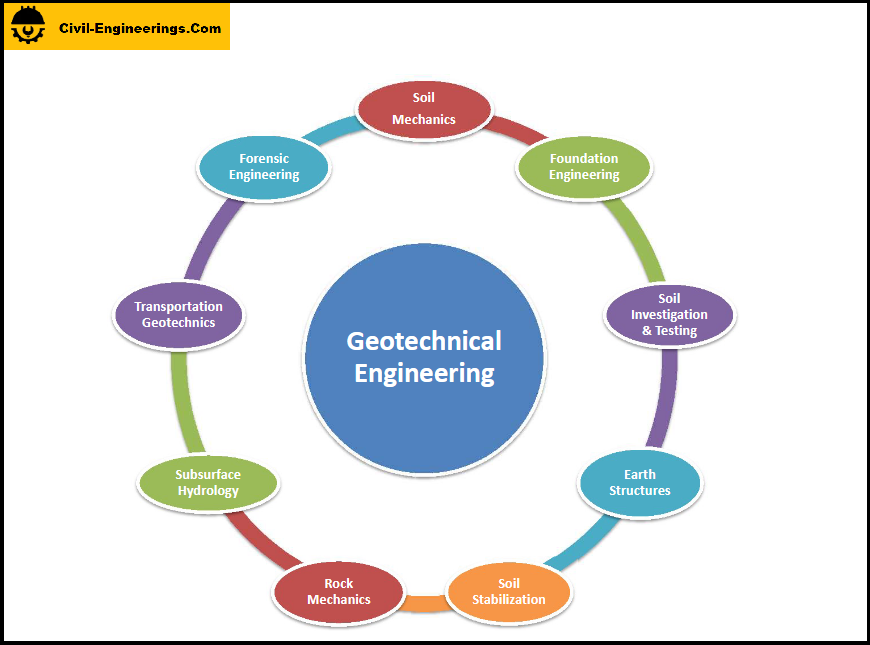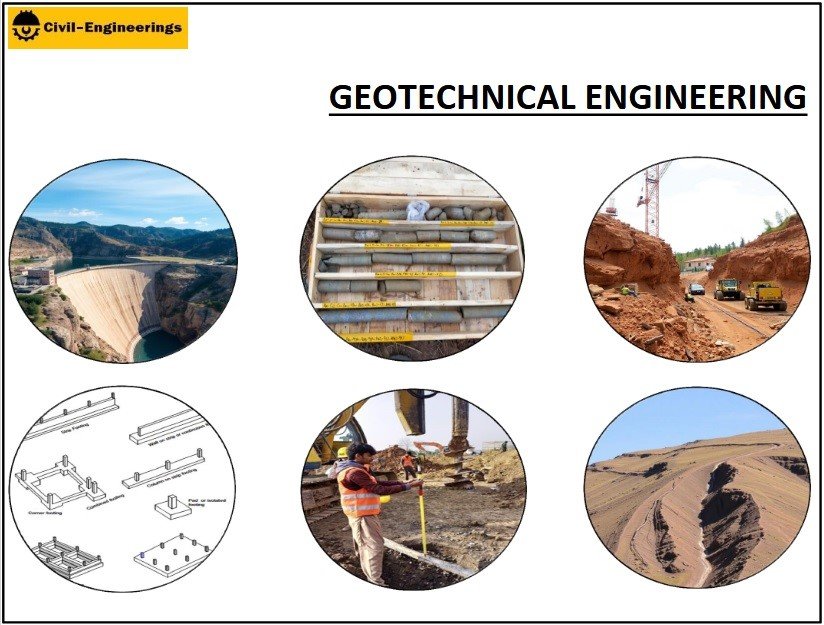The Single Strategy To Use For Specialized Geotechnical Engineering Solutions
The Single Strategy To Use For Specialized Geotechnical Engineering Solutions
Blog Article
The Buzz on Specialized Geotechnical Engineering Solutions
Table of ContentsFacts About Specialized Geotechnical Engineering Solutions UncoveredSome Known Incorrect Statements About Specialized Geotechnical Engineering Solutions Some Ideas on Specialized Geotechnical Engineering Solutions You Need To Know3 Simple Techniques For Specialized Geotechnical Engineering Solutions
They carry out website investigations, collect samples, perform laboratory tests, and evaluate information to examine the suitability of the ground for building and construction tasks. Based on their searchings for, geotechnical designers offer recommendations for structure layout, slope stability, keeping structures, and mitigation of geotechnical dangers. They collaborate with other specialists, such as designers, architectural engineers, and construction groups, to make certain that geotechnical considerations are integrated right into the total job layout and execution.
Structure Design: Geotechnical engineers play a critical role in making structures that can safely sustain the desired framework. They examine the dirt conditions and load requirements to establish the suitable foundation kind, such as shallow foundations (e.g., grounds), deep foundations (e.g., piles), or specialized strategies like dirt enhancement. They consider variables such as negotiation restrictions, birthing ability, and soil-structure communication to establish optimum foundation designs.
Specialized Geotechnical Engineering Solutions Can Be Fun For Anyone
Here are some kinds of geotechnical engineers: Structure Engineer: Foundation designers specialize in developing and examining foundations for frameworks - Specialized Geotechnical Engineering Solutions. They examine the soil conditions, load requirements, and website qualities to identify the most ideal structure type and layout, such as superficial foundations, deep structures, or specialized methods like pile foundations
They perform field screening, accumulate samples, and analyze the gathered data to define the dirt homes, geologic developments, and groundwater problems at a website. Geotechnical Instrumentation Engineer: Geotechnical instrumentation engineers concentrate on monitoring and measuring the behavior of soil, rock, and structures. They mount and maintain instrumentation systems that keep track of aspects such as dirt settlement, groundwater degrees, incline activities, and structural displacements to examine efficiency and provide very early cautions of prospective concerns.
In the workplace environment, geotechnical engineers utilize specialized software devices to execute estimations, create designs, and examine information. Specialized Geotechnical Engineering Solutions. They prepare records, evaluation project specs, connect with customers and staff member, and coordinate project tasks. The office setup provides a favorable environment for research, evaluation, and partnership with various other specialists associated with the job
They regularly see job sites to conduct website examinations, analyze geotechnical conditions, and collect information for evaluation. These visits include traveling to various areas, in some cases in remote or difficult terrains. Geotechnical designers may do soil tasting, conduct tests, and screen construction activities to guarantee that the geotechnical aspects of the job are being executed properly.
Specialized Geotechnical Engineering Solutions - An Overview
Geotechnical designers likewise operate in specialized geotechnical research laboratories. In these centers, they carry out experiments, do examinations on soil and rock examples, and analyze the design homes of the products. Geotechnical research laboratory engineers work extensively in these settings, taking care of testing equipment, operating instruments, and videotaping information. They team up with various other research laboratory personnel to guarantee exact and reputable testing results.
Retaining Walls: Producing wall surfaces that keep back soil to avoid landslides and provide stability on sloped terrains. Embankments and Earthworks: Creating embankments for roads, trains, and dams to ensure they continue to be steady under stress. The mining sector counts heavily on geotechnical design to ensure the safety and security and long life of its procedures.
With this in mind, we have actually created our program to prepare students for success. The Geotechnical Design program at the University of Delaware offers opportunities for advanced research study and research in: Dirt and rock mechanics Soil-structure interaction Constitutive modeling Computational geomechanics Structure and planet frameworks design Ground renovation Slope security and landslide stabilization Liquefaction of dirts and quake design Laboratory characterization of geomaterials and dirt support Environmental geotechnics Provided the solid need for improvement to our country's infrastructurethe American Culture of Civil Designers gave the U.S.
Geotechnical engineering is a branch of civil engineering; nevertheless, it involves making use of clinical methods and concepts to collect and interpret the physical residential properties of the ground. Geotechnical designers are included in all stages of the design of frameworks, from idea to building and construction. Their work is vital in the design and preparation process as they examine the honesty of soil, clay, silt, sand, and rock, prior to building commencing.
Not known Factual Statements About Specialized Geotechnical Engineering Solutions
This is complied with by a ground investigation based upon the findings of the workdesk research and entails test pitting and sampling to uncover any type of possible concerns. Geotechnical engineers function within multidisciplinary groups, sustained by intermediate and jr designers in addition to by CAD technicians. As a senior geotechnical engineer on a hydro plant task, tasks may consist of joining technological evaluations (e.g., peer testimonials), tailings clog assessments, dam safety and security reviews, and other studies related to the design and building of mine waste facilities.
While some professionals are experts exclusively in geotechnics, others may work under titles like design geologist or ground designer within comparable capacities. As a geotechnical designer, you'll need to: construct and maintain connections with find more customers and other professionals associated with the site, throughout each projectmaintain security standards on site be conscious of price implications when you make recommendationsstudy geological maps and aerial photographs from a variety of resources and from different time periodsexamine construction prepares to see exactly how feasible they are based upon your understanding of the siteinvestigate threats or geological risks for the sitesearch for environmentally delicate functions, such as garbage dump beginning to create factual and expository ground modelsplan field investigationsdrill and evaluate samples of bedrock, dirt, groundwater and added products supervise various other professionals on sitesolve technological issues as they emerge, such as unanticipated frameworks at drill sitesmonitor problems throughout and after construction to make certain frameworks are stable in why not find out more the brief and long termadd data collected on site to your first researchcreate geotechnical estimations, illustrations, and 2 or three-dimensional computer system models interpreting the datamake referrals concerning the proposed use the site.
There are great deals of possibilities to satisfy brand-new individuals, as you'll collaborate with a range of professionals at every site. The job can be demanding as you may be in charge of the security of others while on website. There is also a high degree of economic obligation, as the suggestions you make can have severe price ramifications.

Report this page